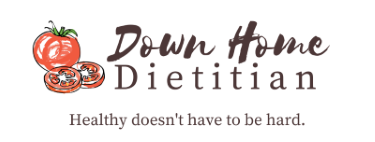On a note unrelated to any particular diet, I wanted to take a moment to spotlight one heck of a health and fitness inspiration.
I discovered this gal on a recent vacation when we had a TV in our hotel room (the kids were super psyched!) and watched a show called American Ninja Warrior. If you haven’t heard of it and you are in the right age range, you will best liken it to something along the lines of American Gladiators. If neither of those names means anything to you, American Ninja Warrior is a strength and agility competition in which contestants train to tackle a specific (very difficult) obstacle course. They are timed, and they must achieve certain times and complete certain obstacles in order to move on to the next round.
In the episode we watched, there was a very tricky obstacle christened “The Wedge” in which contestants hung from a horizontal bar with rubber tennis-ball-like objects on either end. This bar was wedged into what looked like two sheets of angled glass. The contestants had to use their momentum and body control to “jump” the bar across the tunnel between the two glass sheets, ensuring they keep the bar horizontal and don’t lose their grip. If my description makes absolutely no sense, fear not, for the video below will clear things up. “The Wedge” took no prisoners. Time after time, they would get to that darn wedge and their grip would slip or the bar would land slightly sideways and down they would plunge into the waiting pool below. It was beginning to look downright impossible.
Enter our heroine – Jessie Graff. Jessie is a stunt woman from Pennsylvania. She enters stage left with a delightful smile and a Wonder Woman costume. Her interviews gave a taste of her zest for life and her positive attitude. She is beautiful and fit on the outside, sure, but her mind and heart also exude beauty. Jessie, the only female in the show I watched, conquered the dreaded Wedge like it was a set of monkey bars on a playground.
So why am I all about Jessie Graff now? It’s not just because she’s a woman or because she “beat the boys” (though I’d be lying if I said there wasn’t a defiant third-grade girl inside me who found a little bit of glee in that). It’s because she surpassed everyone’s expectations – including her own. It’s amazing what we can accomplish when we combine discipline with a positive attitude. I so admired these qualities in her that I tracked her down on Facebook. Her page is littered with pictures of little girls in Wonder Woman suits and comments from people saying that she is inspiring others out of eating disorders by showing what the human body is capable of when properly fueled.
This lady is stupendous and has most definitely been added to my mental Wall of Inspiring People.
You and I also can (and should) make a practice of surpassing everyone’s expectations – including our own. Make a fitness goal to see what your body can do – even if it seems a little out of reach. Add some positive attitude and discipline and you can inspire the socks off of yourself and others too!





